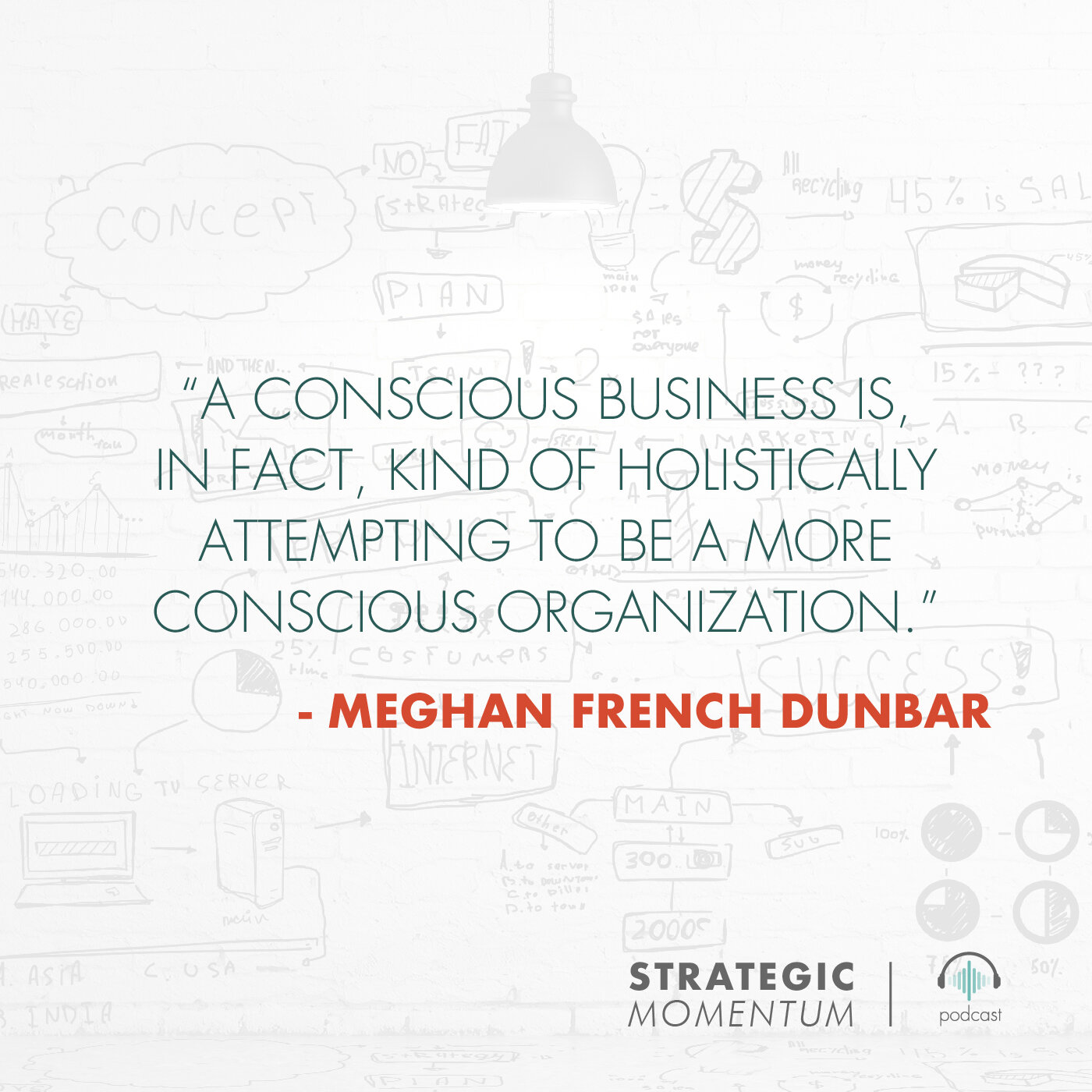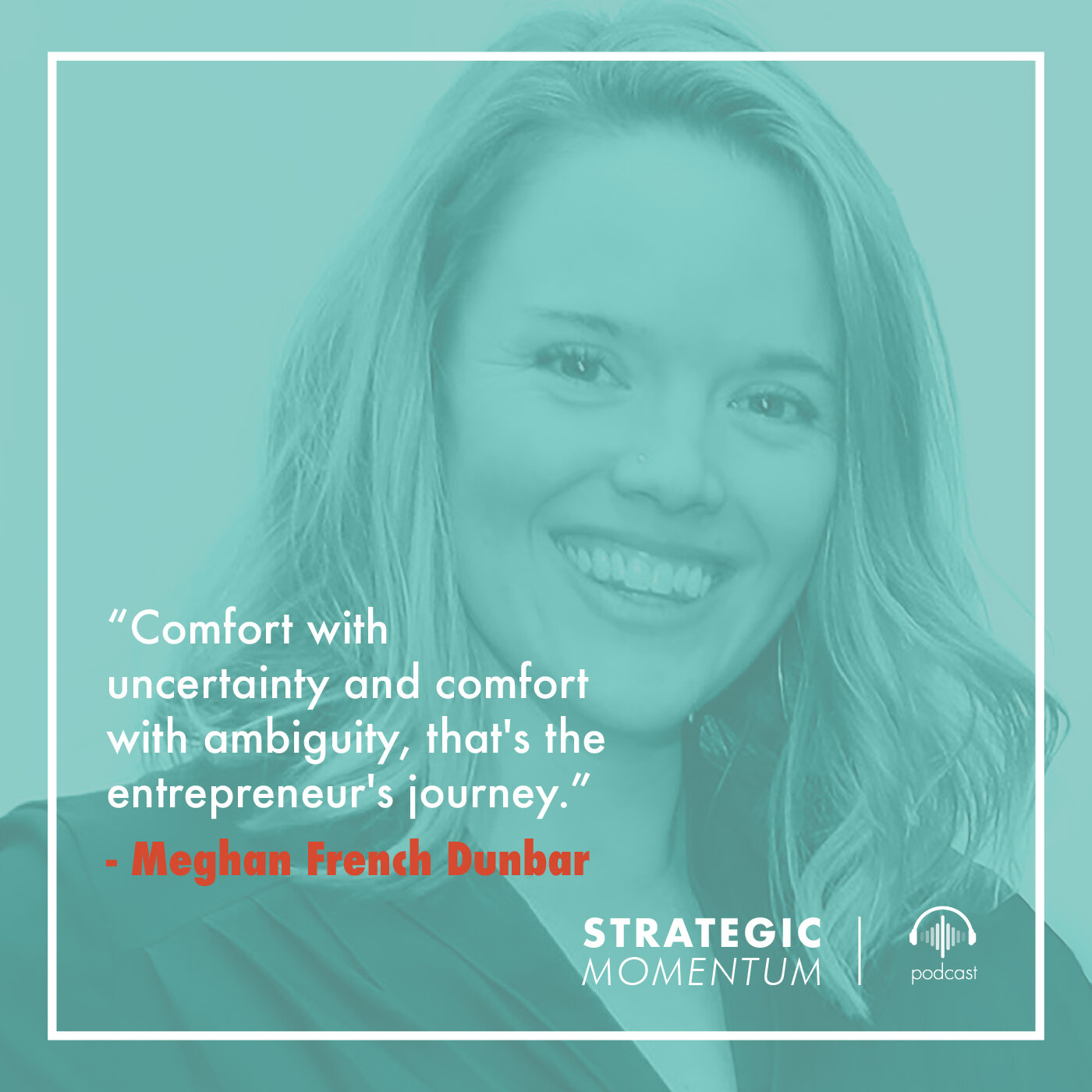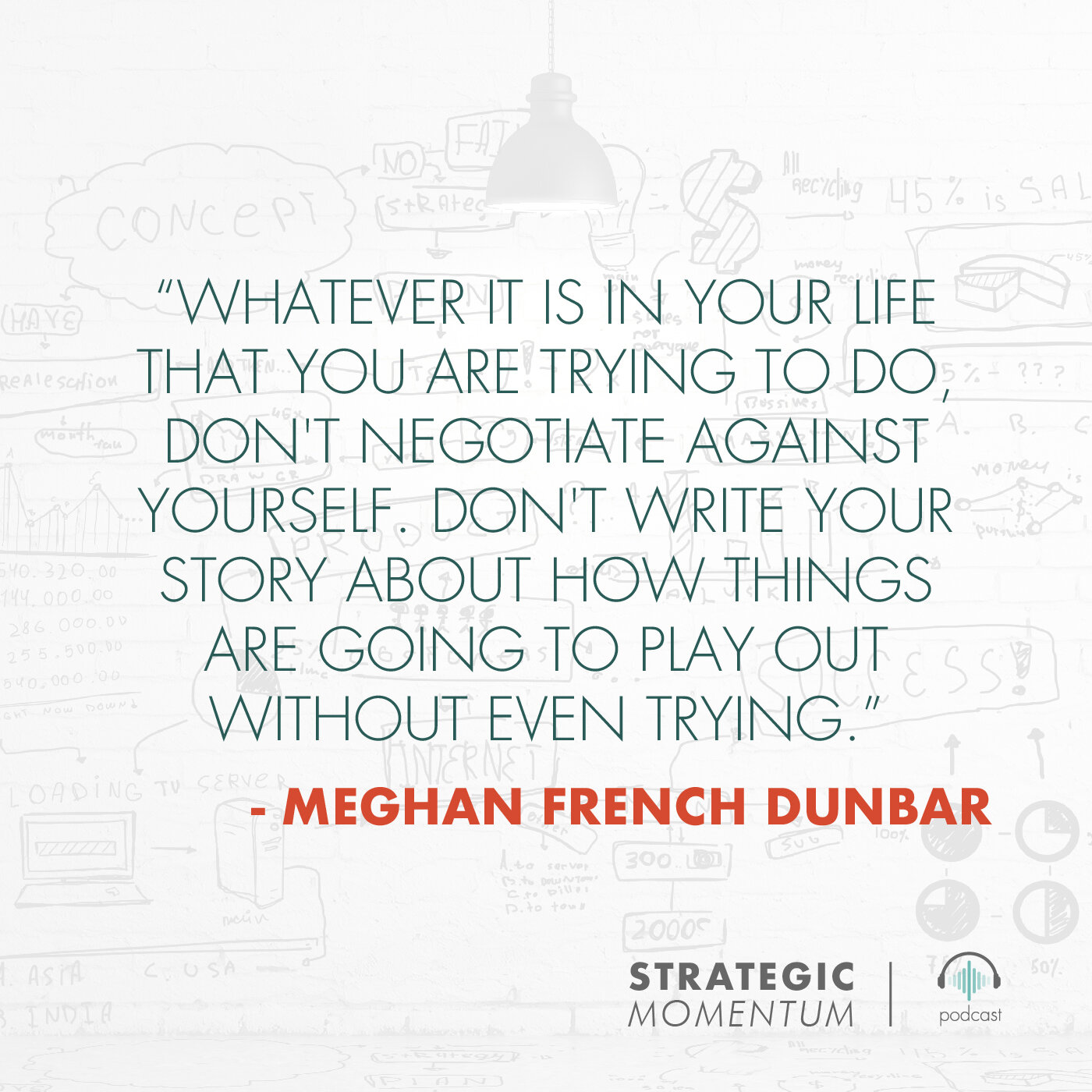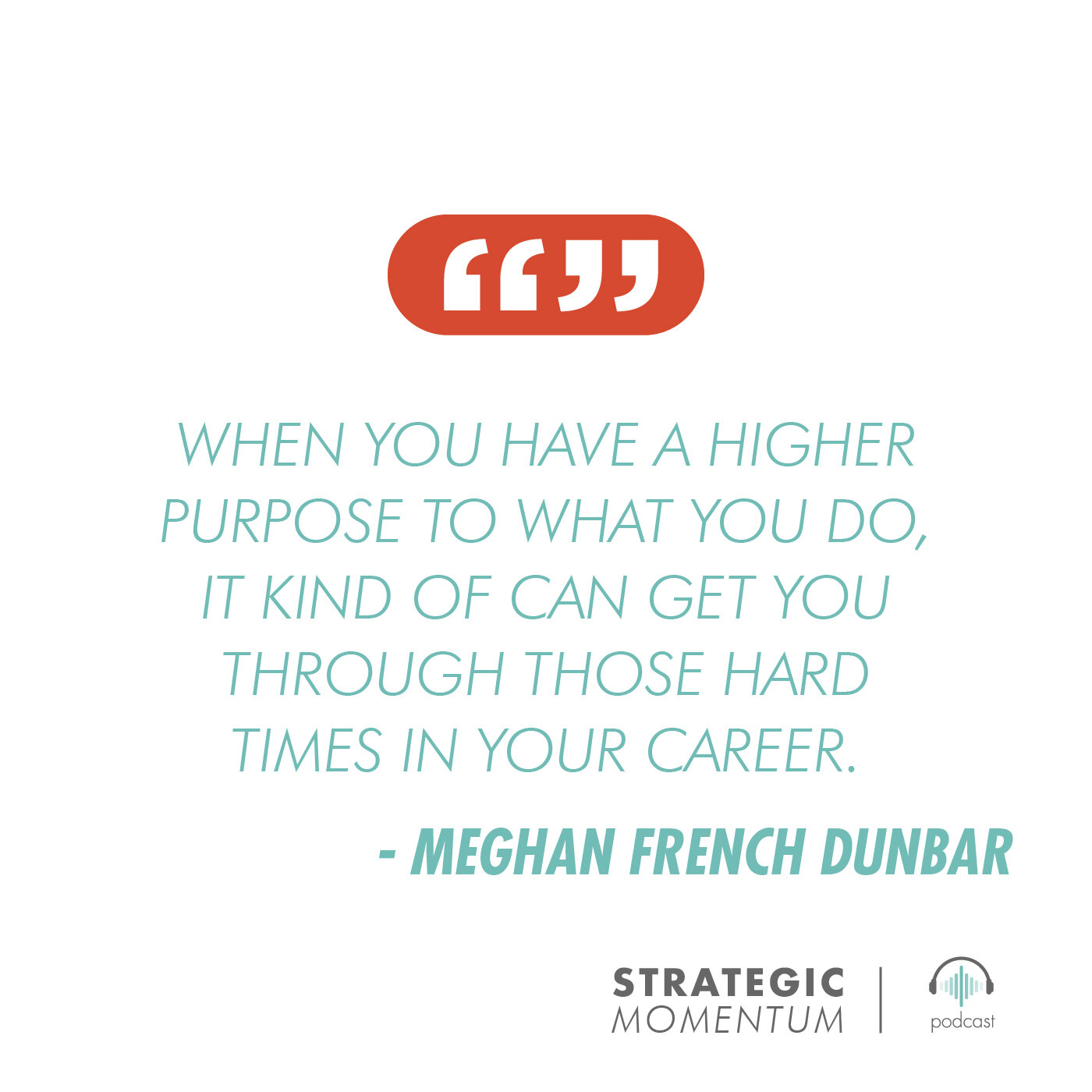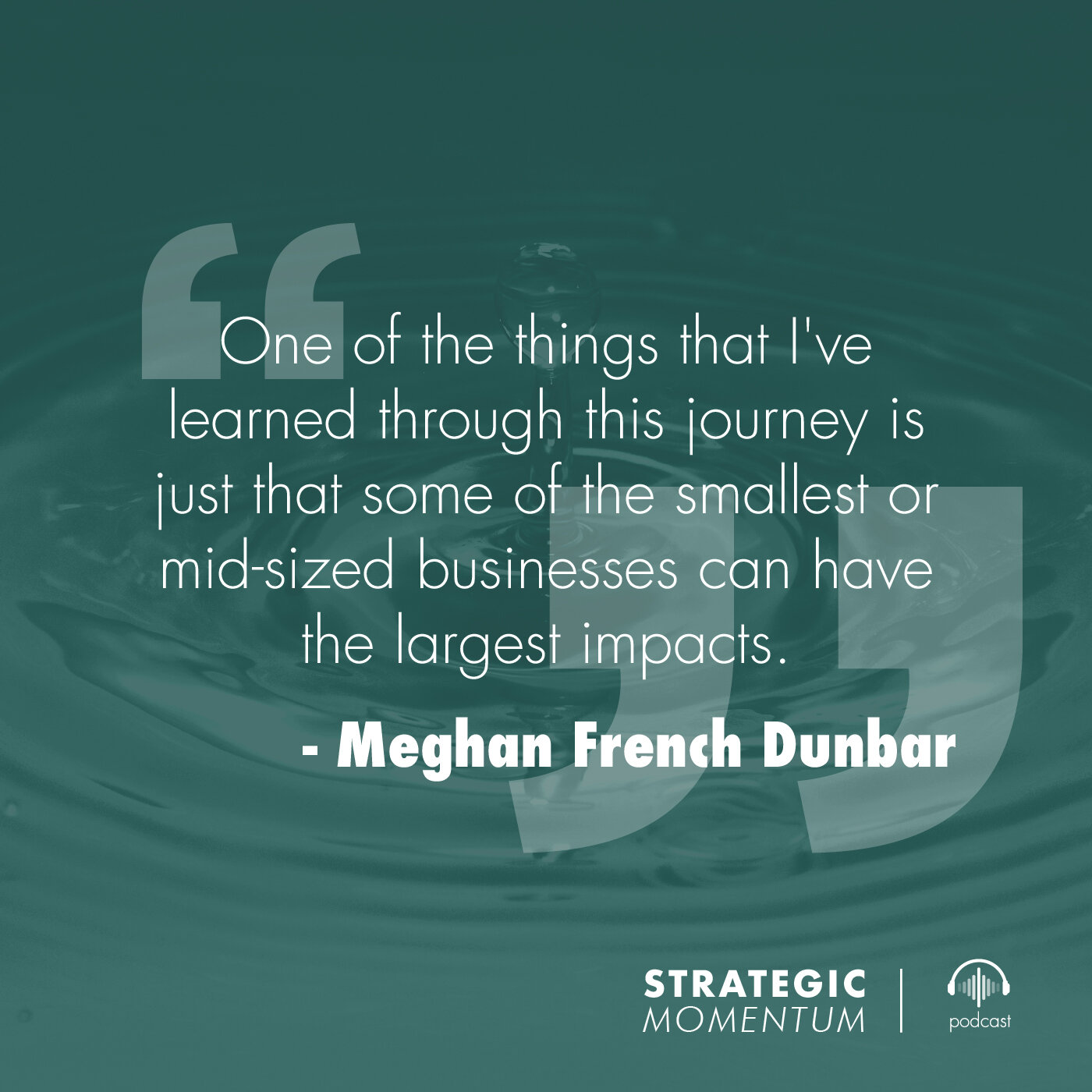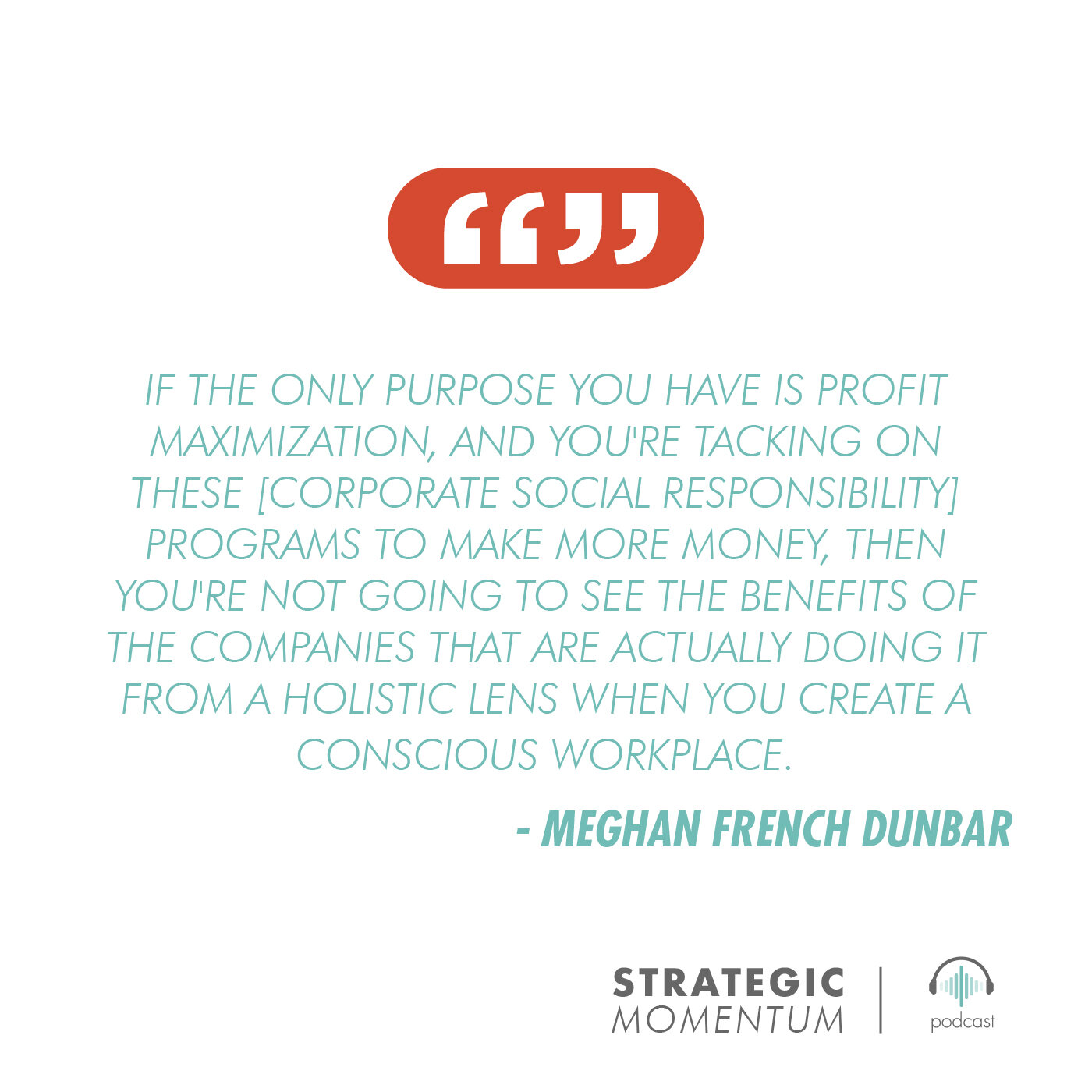Ep. 55 - Building a Conscious Company: Delivering Sustainable Benefits for People, the Planet, and Your Business - with Meghan French Dunbar
Find Us Wherever You Listen To Podcasts
There is a continual trend towards companies thinking and operating in a more “conscious” way. And while there is the desire in many companies to do so, not all are able to fulfill on that promise. But those that do end up taking a more comprehensive approach to delivering a spectrum of positive effects have been proven to outperform the market financially.
Meghan French Dunbar is Co-founder and CEO of Conscious Company Media, the nation’s leading multi-media hub dedicated to purpose-driven businesses and social enterprises. The company’s flagship product — Conscious Company Magazine — was the first nationally distributed print publication in the U.S. to focus exclusively on sustainable and conscious business practices.
Meghan has dedicated her life to using business as a driving force for positive change in the world. And in this episode, she shares the career journey that brought her to the conscious business world, as well as her perspective on what the conscious business movement is and what it takes to deliver sustainable benefits for people and the planet, as well as yourself – not just your business – all to help everyone move forward.
A Calling to Do Good for the World
Throughout her early career, Meghan had a desire to help others and do good for the world. This mentality was driven by her parents, particularly her mother, who worked as a pediatric occupational therapist while Meghan was a child. As a result, Meghan saw how having a higher purpose could create that fulfillment to help one weather the challenging times in one’s career.
After studying journalism and taking a year to teach English in Costa Rica, Meghan started working in the non-profit industry. Her short stint at a Boulder-based non-profit in their development department led to a five-year spell at one of the largest environmental non-profits, the Environmental Defense Fund. There, she was exposed to how some of the largest corporations could be incentivized to be more environmentally or socially sustainable through market-based solutions.
She decided to pursue an MBA in sustainability to build upon her knowledge on how to use business as a force for good. She went back to EDF for a short-period of time after graduating and then had the opportunity to leverage her journalism background as a magazine editor.
However, after an unexpected turn of events, she was fired from her job after 5 months. She saw herself as unemployable, which ended up being the catalyst that caused her to pursue being an entrepreneur and creating the first print magazine dedicated to sustainable business, the Conscious Company Magazine.
That has since grown from a print magazine to a company that offers events and a wide range of content through a platform that supports the people in this purpose-driven business community. And in the process, Meghan has continually redefined how to create momentum to support the purpose of doing good.
Being a Conscious Business: An Interrelated, Interconnected and Interdependent Approach to Delivering on a Clear Purpose
The Conscious Business Movement is more than just Corporate Social Responsibility or Corporate Giving Programs.
It’s a holistic approach that encompasses leadership and workplace environment, creating a structure that ensures there is a positive organizational impact. Further, it’s an ongoing process that includes an awareness of self, purpose, practice, and relationships.
And, fundamentally, it can’t be about implementing programs that are solely about driving profit maximization.
Meghan was forced by necessity to adapt to her circumstances and re-evaluate her career path. She believes “comfort with uncertainty and comfort with ambiguity: that's the entrepreneur's journey,” and this needs to be the case within organizations and industries if they are to create a truly conscious approach.
And ultimately, it takes brave leadership to examine a company, and indeed an entire industry, to then radically change the accepted processes.
Meghan’s Career Advice
“As long as you're still passionate about what you're doing, just never quit.”
“When you do work in the world that has a positive impact, it's so much easier to go to work and so much more enjoyable.”
“Whatever it is in your life that you are trying to do, don't negotiate against yourself. Don't write your story about how things are going to play out without even trying.”
Key Takeaways:
The Conscious Business Movement is diverse and includes various industry groups. However, “these different groups around the world are coming at it, generally, through different but similar lenses of how to usher in a new era of business where profit maximization is not the only thing that businesses care about.”
Being a true Conscious Business is more than having a corporate giving or corporate sustainability program. It is a holistic approach encompassing leadership, workplace environment, and delivering a positive impact on the world by your organization.
To fulfill on the promise of being a Conscious Business, there has to be a focus on that higher purpose – your company’s why. Profit maximization and operational efficiency cannot be the primary goal.
Reframing success and subsequently all the operations needed to achieve that higher order purpose is key in becoming a Conscious Business. As a result, you will need to examine and update your own practices, and maybe those of your industry as a whole.
Embodying a consistent culture of consciousness is also a critical factor in becoming (or sustaining) that standard of a conscious business.
To do so requires awareness, alignment, and consistent behavior among everyone in the company, in relation to the company values.
Company philosophies need to be clear, communicated, and reiterated so that all employees from the top down know the company values and their place within it.
Leadership should always lead by example and ensure a conscious approach personally, as well as across the company.
Bigger is not always better. Often, small to mid-level businesses can have the greatest social impact.
That shift in one’s purpose and goal is important to realize one’s full potential and determine career success.
It’s redefining the traditional narrative of business success to achieving work/life balance and flexibility so one can have the best impact now and in the future.
Resources:
Connect with Meghan via Linkedin
Learn more about Conscious Company Media
Subscribe to the Strategic Momentum podcast:
On Spotify








